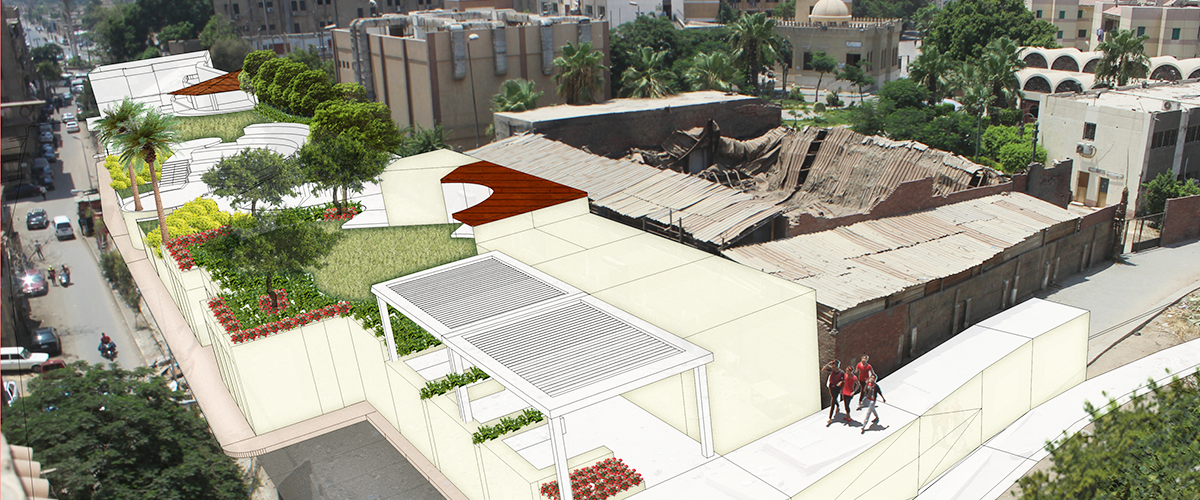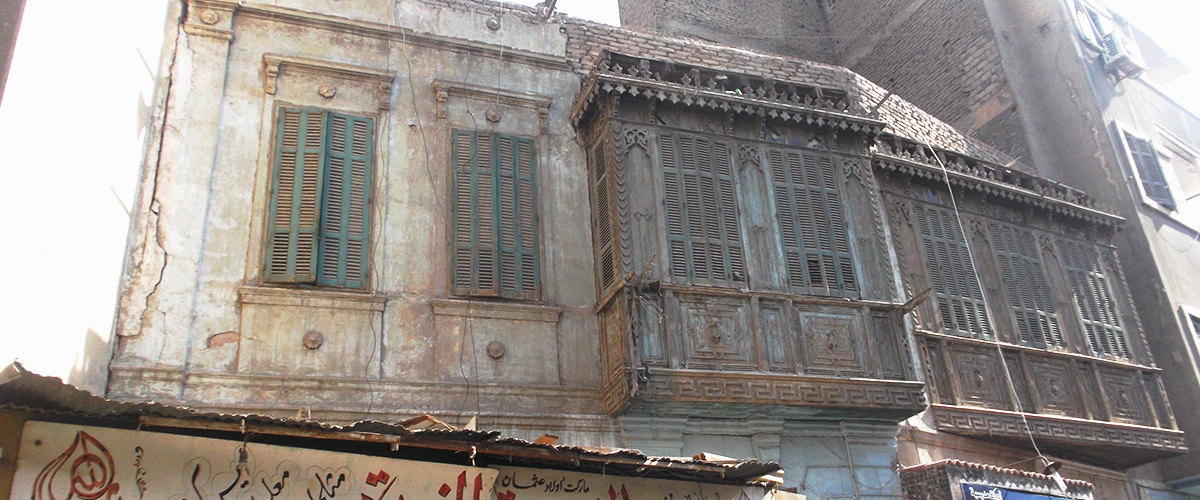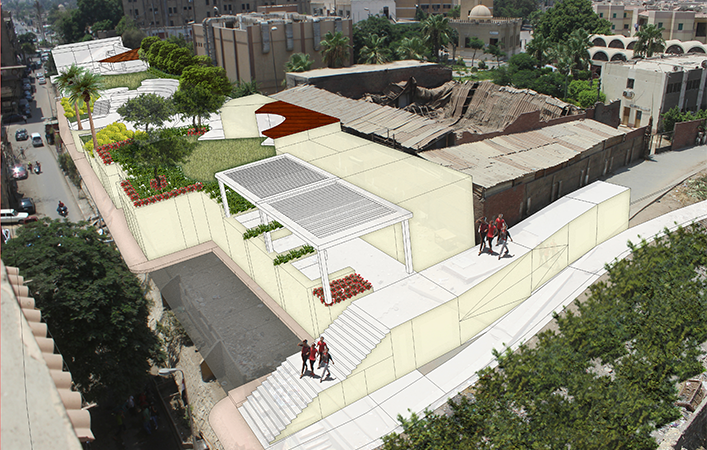





April 2015 – March 2016; in partnership with the Ministry of Antiquities and Cairo Governorate and in collaboration with the Faculty of Urban and Regional Planning, Cairo University and Takween for Integrated Development.
In an attempt to raise the impact of the project beyond conservation and soft social development activities, the initiative widened its scope to include physical upgrades on the urban level. It started by building a GIS system that includes information about buildings’ conditions, heritage value, land use and urban and demographic characteristics, in addition to information about urban system problems such as water, waste and open spaces. Athar Lina also commissioned an anthropological study on infrastructure and its effect on the quality of life.
A waste management study of al-Khalifa and its surrounding streets was also conducted. Waste tends to accumulate around monuments and historic buildings. Studies of the current waste collection system resulted in recommendations on different scales to improve the system and avoid some of its faults.
This urban study is the theoretical base of the Citizen Participation in Historic Cairo Project, it also resulted in a survey of potential plots for interventions that would be implemented through Athar Lina’s Open Spaces Program.











April 2015 – March 2016; in partnership with the Ministry of Antiquities and Cairo Governorate and in collaboration with the Faculty of Urban and Regional Planning, Cairo University and Takween for Integrated Development.
In an attempt to raise the impact of the project beyond conservation and soft social development activities, the initiative widened its scope to include physical upgrades on the urban level. It started by building a GIS system that includes information about buildings’ conditions, heritage value, land use and urban and demographic characteristics, in addition to information about urban system problems such as water, waste and open spaces. Athar Lina also commissioned an anthropological study on infrastructure and its effect on the quality of life.
A waste management study of al-Khalifa and its surrounding streets was also conducted. Waste tends to accumulate around monuments and historic buildings. Studies of the current waste collection system resulted in recommendations on different scales to improve the system and avoid some of its faults.
This urban study is the theoretical base of the Citizen Participation in Historic Cairo Project, it also resulted in a survey of potential plots for interventions that would be implemented through Athar Lina’s Open Spaces Program.
Athar Lina is a participatory conservation initiative that aims to establish modalities of citizen participation in heritage conservation based on an understanding of the monument as a resource not a burden.
© 2025 ATHAR LINA. All rights reserved.